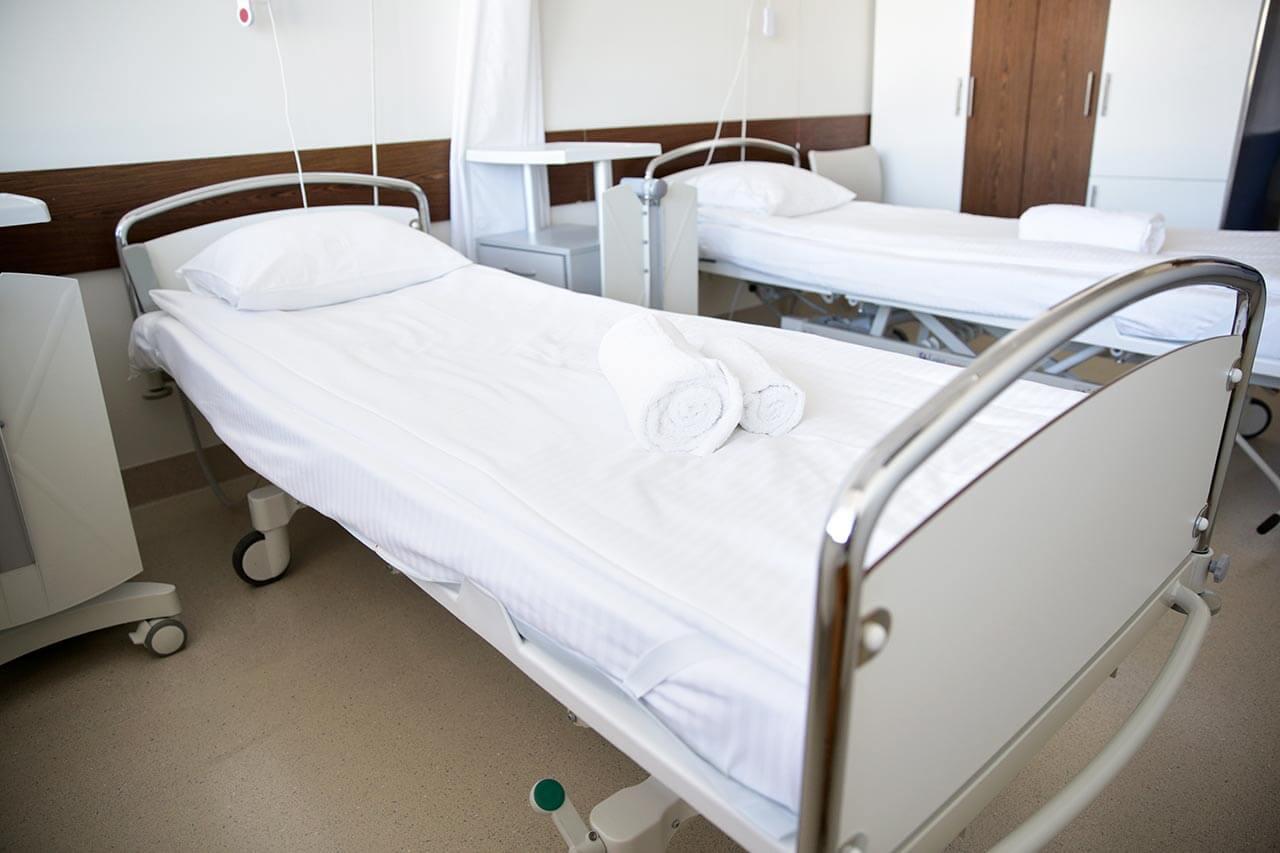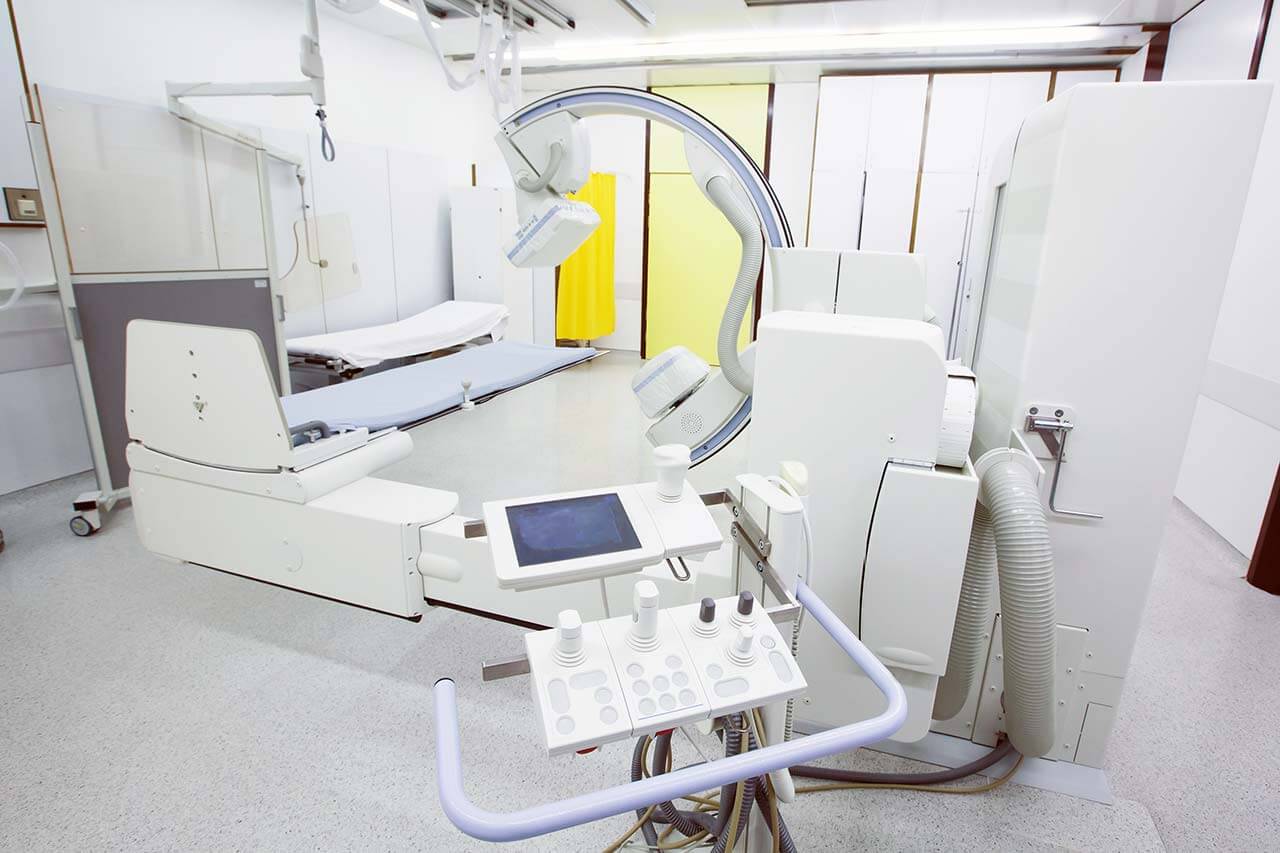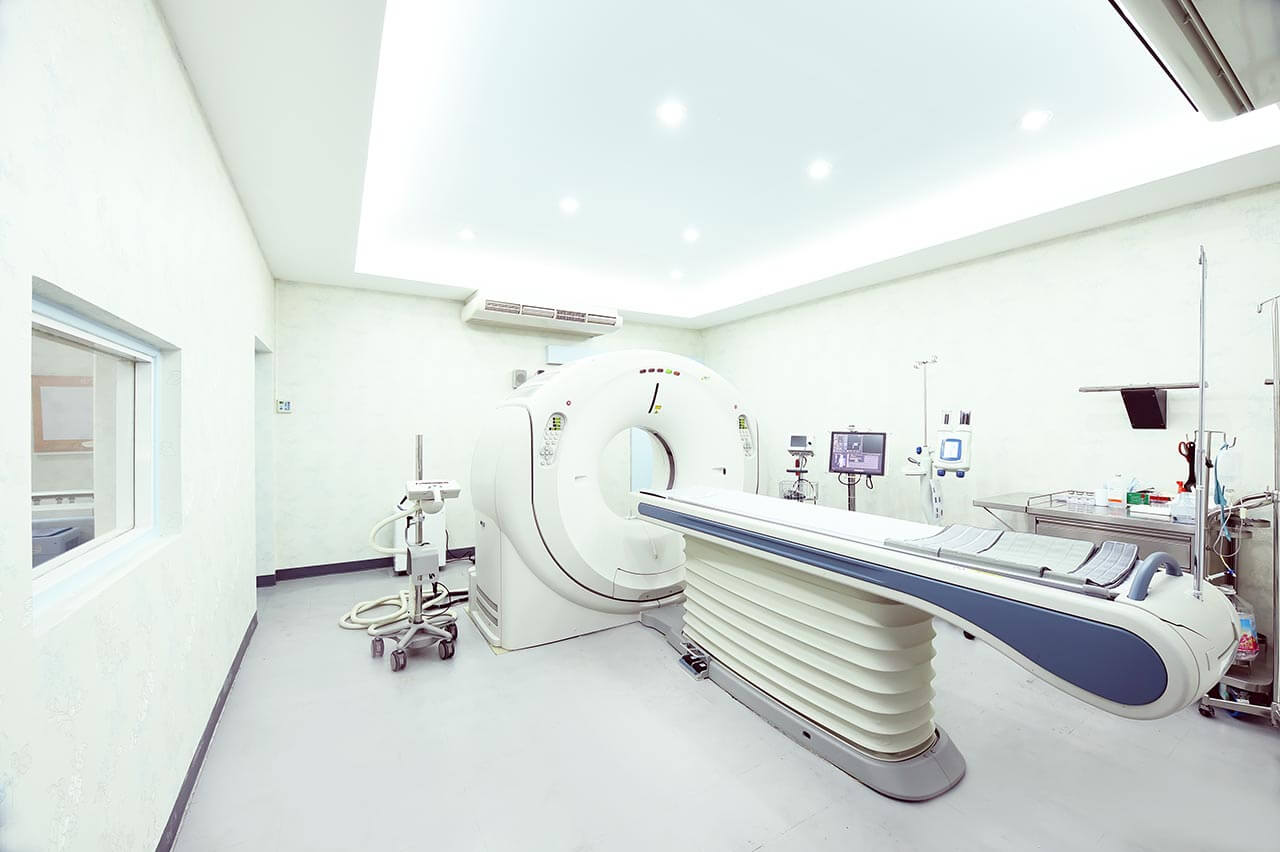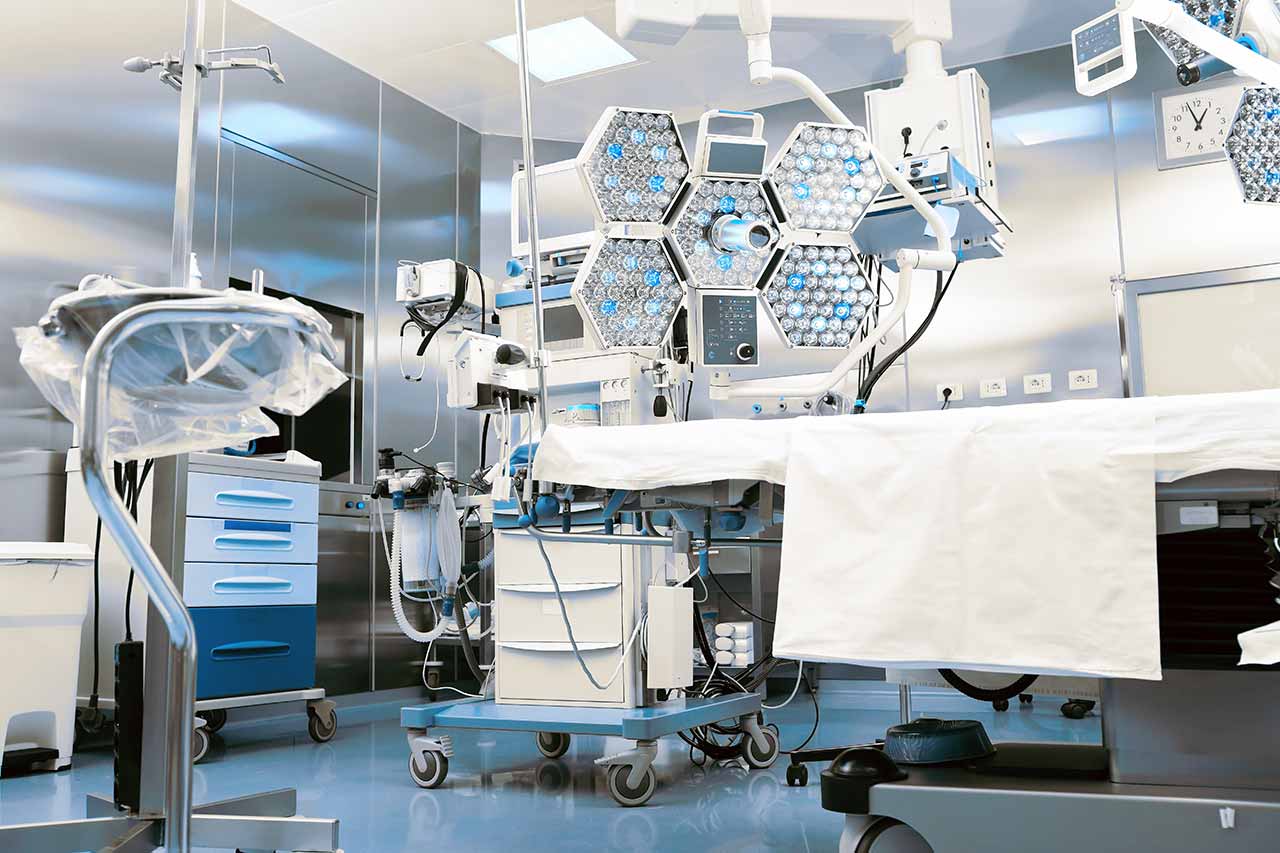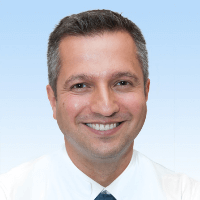
The program includes:
- Initial presentation in the clinic
- clinical history taking
- review of medical records
- physical examination
- laboratory tests:
- complete blood count
- biochemical analysis of blood
- thyroid function test (TSH-basal, fT3, fT4)
- mineral metabolism analysis (Na, K, Ca, Mg)
- lipid metabolism (HDL/LDL, cholesterol, triglycerides,
Lip(a), homocysteine) - iron content (ferritin, iron)
- blood coagulation analysis (aPTT, PT, INR)
- metabolic status (uric acid, total glucose, HbA1c)
- inflammatory parameters (CRP, ESR)
- cardiovascular disease risk markers
- lung function test (Spirometry)
- resting and exercise ECG
- Holter monitoring (24h)
- color doppler echocardiography
- color doppler sonography of cerebral vessels
- preparation according to preoperative standard
- Implantation of cardioverter- defibrillator
- symptomatic treatment
- control examinations
- the cost of essential medicines and materials
- nursing services
- full hospital accommodation
- explanation of future recommendations
- written statement
Required documents
- Medical records
- ECG (if available)
Service
You may also book:
 BookingHealth Price from:
BookingHealth Price from:
About the department
According to the Focus magazine, the Department of Cardiology and Angiology at the University Hospital Essen ranks among the top German medical facilities specializing in the treatment of cardiovascular diseases!
The department offers the full range of diagnostic and therapeutic services for the comprehensive treatment of cardiovascular diseases. The department's doctors have in their arsenal tremendous options for the treatment of coronary heart disease, arrhythmias, heart valve pathologies, heart failure, aortic diseases, congenital heart defects. Also, the specialists are highly competent in the emergency medical care and intensive care. The purpose of all department's employees is the provision of customized medical care based on the current guidelines of the international societies. The department is headed by Prof. Dr. med. Tienush Rassaf.
The department has a progressive Chest Pain Unit for the patients with acute and emergency conditions. The unit is equipped with the modern monitoring systems. The department also has several Cardiac Catheterization Laboratories, which annually perform more than 4,000 procedures for diagnostic and therapeutic purposes. In addition, the department is the Center of Excellence for Advanced Heart Failure.
In the field of angiology, the department specializes in the diagnostics, counseling, drug and minimally invasive treatment (catheter intervention) of vascular diseases. Special attention is paid to the diagnostics and treatment of atherosclerotic lesions of the extracranial and peripheral arteries (for example, occlusive peripheral artery disease). In the treatment of these types of pathologies, balloon dilatation and recanalization are widely used.
The service range of the department includes:
- Diagnostics and treatment of coronary heart disease, including transluminal balloon coronary angioplasty (TBCA), rotablation, recurrent restoration of occluded coronary arteries, intravascular ultrasound examinations, optical coherence tomography and fractional flow reserve measurement.
- Diagnostics and treatment of vascular diseases.
- Transcatheter aortic valve implantation (TAVI)
- Interventional mitral valve repair (MitraClip)
- Valvuloplasty
- Diagnostics and treatment of terminal heart failure, including heart transplantation and implantation of left-ventricular assist device (LVAD)
- Treatment of structural heart diseases
- Interventional closure of the atrial appendage (left atrial appendage occlusion)
- Interventional closure of patent foramen ovale and atrial septal defect closure
- Ablation in hypertrophic cardiomyopathy
- Diagnostics and treatment of aortic diseases using aortic stenting
- Diagnostics and treatment of arrhythmias
- Emergency care in acute cardiac conditions (Chest Pain Unit)
- Cardiovascular intensive care
- All modern types of cardiovascular diagnostic imaging
- Prevention of cardiovascular diseases and regular check-ups in the availability of risk factors
- Other medical services
Curriculum vitae
Research Activities
- 02.2001 Doctoral thesis defense with honors.
- 2001 - 2002 Research Scholarship of the German Research Foundation, Department of Molecular and Cellular Physiology, Shreveport, Louisiana, USA.
- 2002 - 2003 Scholar of the German Cardiac Society (DGK), Research on Cardiovascular Diseases, Institute of Cardiovascular Physiology at the Heinrich Heine University Duesseldorf.
- 12.2008 Habilitation.
- 07.2010 - 07.2015 W2 Professor of the German Research Foundation (DFG) in Internal Medicine (focus on infarction), Heinrich Heine University Duesseldorf, Head of the Research Group on Cardiovascular Diseases.
- 10.2012 - 07.2015 Deputy Chairman of the Research Committee of the Medical Faculty of the Heinrich Heine University Duesseldorf.
- Since 04.2014 Chairman of the Working Group "Coronary Blood Flow and Myocardial Perfusion", German Research Foundation.
Clinical Training
- 1994 - 2000 Study of Human Medicine at the Heinrich Heine University Duesseldorf and the Texas Institute of Cardiology, University of Texas, Houston, Texas, USA.
- 2000 - 2001 Intern, Department of Cardiology, Pulmonology and Angiology at the University Hospital Duesseldorf.
- 2002 Admission to medical practice.
- 2003 - 2005 Assistant Physician, Department of Cardiology, Pulmonology and Angiology at the University Hospital Duesseldorf.
- 2005 - 2008 Assistant Physician, Department of Cardiology, Pulmonology and Angiology at the University Hospital Aachen.
- 2008 - 2009 Senior Physician, Department of Cardiology, Pulmonology and Angiology at the University Hospital Aachen and Managing Senior Physician in General Intensive Care.
- 2009 Senior Physician in the Department of Cardiology, Pulmonology and Angiology at the University Hospital Duesseldorf.
- 2012 Personal Senior Physician of the Medical Management Team, Leading Senior Physician in the Intensive Care Unit, Leading Senior Physician in the Cardiac Catheterization Laboratory.
- 2013 Managing Senior Physician and Deputy Head of the Department.
- Since 08.2015 Head of the Department of Cardiology and Angiology at the University Hospital Essen.
- Since 01.2016 Speaker on Cardiovascular Diseases, University of Duisburg-Essen.
Photo of the doctor: (c) Universitätsklinikum Essen
About hospital
According to the authoritative Focus magazine the University Hospital Essen ranks among the top German hospitals!
With 27 specialized departments and 24 institutes, the hospital in Germany is a maximum care medical facility. The hospital has 1,300 beds for inpatient treatment. A highly qualified medical team of more than 6,000 employees takes care of the health of patients. All the specialists give preference to an interdisciplinary medical care, which guarantees a comprehensive treatment taking into account the smallest aspects of a particular pathology. The hospital annually diagnoses and treats more than 50,000 inpatients and about 195,000 outpatients, which testifies to the prestige of the medical institution and the highest quality of treatment in Germany.
The hospital presents all the modern medical fields. Nevertheless, special attention should be given to the following major fields of specialization as oncology, transplantology and cardiology, as well as research activities in the field of immunology, infectology and translational examinations of pathologies of the nervous system and behavioral disorders.
Established on the basis of the standard American model of Comprehensive Cancer Centers, the West German Cancer Center (WTZ) in Essen was recognized as the best medical facility of this kind in Germany in 2009. Nowadays, the center holds leading positions both on the national and international medical markets. The basis of its successful clinical practice is the use of very latest treatment methods and an interdisciplinary approach to each clinical case. The West German Organ Transplant Centre (WZO) is also recognized as one of the best in the country and one of the few in Germany, which specializes in the transplantation of all vital organs, such as kidney, liver, pancreas, heart and lungs. Special attention is paid to kidney and liver transplantation.
The hospital in Germany is proud of its high-tech medical equipment, experienced and competent staff, productive research activities, which allow to guarantee the accurate diagnostics and effective treatment, including rare and very complex clinical cases for every patient. Consequently, the hospital is considered a perfect embodiment of high-quality treatment in Germany.
Photo: (c) depositphotos
Accommodation in hospital
Patients rooms
The patients of the University Hospital Essen live in comfortable rooms designed in bright colors. The standard room furnishing includes an automatically adjustable bed, a bedside table, a personal wardrobe, a personal call button with a built-in light panel, a telephone, a TV and a radio. The Internet access is available at an additional cost.
Meals and Menus
The patients of the hospital are offered a daily choice of three menus. The patients are also offered alternative types of menus, if their religion requires the exclusion of certain foods. If you follow a certain diet or suffer from food intolerance, you will be provided with a menu of your choice by discussing it with your attending physician in advance. The hospital also houses a bistro and a cafe, where one can have a tasty snack, enjoy hot and cold drinks.
Further details
Standard rooms include:
Accompanying person
There are a few types of hotels for the accompanying persons, who want to stay near the hospital. The hotel of the Essen University Hospital offers apartments on the first floor of the nursing high-rise building. The DRK nursing also offers single and double rooms.
The hotel in Grugapark is available for the parents, whose children stay in the hospital. The parents of children with cancer can also stay here. Moreover, The Department of Pediatrics offers its rooms for parents.
